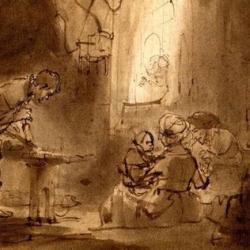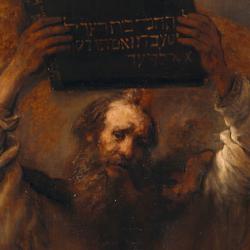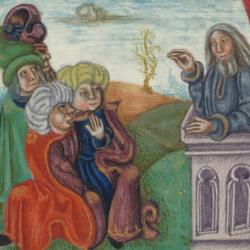Exodus 20:8: Remember the Sabbath day to keep it holy.
We live in a world of total labor. All time and space is valued by its use, its productivity, its function. There is no place that, in principle, withdrawn from productive use. There is no time “set aside from working hours and days, specially marked off . . . from all merely utilitarian ends” (Pieper).
Work has become a cult, a religion, complete with its own holidays. Americans celebrate a feast day called Labor Day! Paradoxically, a world of total labor deprives labor of meaning: “work itself becomes inhuman: whether endured brutishly or ‘heroically’ work is naked toil and effort without hope – it can only be compared to the labours of Sisyphus, that mythical symbol of the ‘worker’ chained to his function, never pausing in his work, and never gathering any fruit from his labours” (Pieper).
A world of total labor has no room for genuine rest or leisure, no time for Sabbath.
“Leisure becomes laziness.” Holidays are only a break from work, defined by the work that imprisons them. Instead of Sabbath and celebration, we have sloth, killing time, boredom, what the medievals called “acedia,” the noonday demon of despair and idleness.
In a world of total work we see no end; we enjoy no fruit from our labors; we never arrive at the seventh day. But God has given us rest, on the first day, and this table shows us that our labor is not endless nor vain because we are not “workers” in our essence, but the Father’s children who receive the gift of Jesus the Son through the Spirit. That alone gives meaning to our work.
At this table, we remember Sabbath, and learn to live Sabbatically as a Sabbatical people. At this table, we learn to work from Sabbath and toward Sabbath, because God’s gift of rest is our Alpha and Omega, beginning and end.










